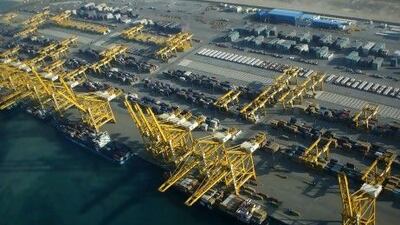Dubai World asked its banks for some breathing-space more than 18 months ago while it started talks to extend repayment of about US$25 billion (Dh91.82bn) of debt.
Industry Insights: More premium business content offered by The National
Last Updated: May 30, 2011
China's high-speed rail faces bullet China's high-speed rail network has hit the buffers over allegations of multimillion corruption. Read article
Germany's slowness to explore electric cars imperils its best industry Germany's car industry plugs into an electric future. Read article
Regions discovering value of co-operation The decline of US power is an opportunity for neighbouring states to come together with the EU acting as a model. Read article
The ugly truth is that it pays to be tall and handsome Do better looking people get better paid jobs, one recent study has delivered a depressing truth for those not so blessed. Read article
Because the company is government-owned and a central player in Dubai's development, Dubai World's problems sent tremors through global markets and put investors on notice that the emirate, like other places where easy lending fuelled unsustainable asset-price bubbles, needed a little help.
Dubai had already lined up $10bn of loans from the Central Bank to help to keep companies deemed strategically important in business. But the Dubai World restructuring was nevertheless a seminal event in the UAE's post-financial-crisis narrative.
Unsurprisingly perhaps, much has changed about Dubai and about business in the emirate since the financial crisis.
Gone are the go-go days when developers launched plans for overly grand projects by the dozen. Gone, too, are the financial tools Dubai exploited to expand at such a rapid pace.
The international investors eager to buy bonds at low rates of interest and with short tenures are also a distant memory, as is the competition among banks to lend to the conglomerate.
A year and a half later, the focus in Dubai has narrowed on practicality and traditional grit. The emirate's established merchant class is helping to clean up the financial mess made by a generation of younger, more daring entrepreneurs who reinvented Dubai city with borrowed money.
Company boards have been shaken up, and Dubai's Supreme Fiscal Committee - a group formed after the crisis - is increasingly central in the emirate's financial hierarchy. Its members include Sheikh Ahmed bin Saeed Al Maktoum, who made Emirates Airline into a global aviation force, and Mohammed al Shaibani, a stalwart of the local business community.
The new managers of Dubai's state businesses have made considerable progress in the past 18 months. They have successfully renegotiated Dubai World's $24.9bn debt, extending its old borrowings into new loans that mature in five and eight years.
Nakheel, the government-owned developer behind Dubai's palm-shaped islands, is undergoing a separate restructuring and is expected to issue an Islamic bond to contractors to which it owes money. It has already paid out billions of dirhams in cash to settle some claims.
That said, much more terrain is left to cover. Nakheel is facing numerous challenges in the Dubai World Tribunal, a special court set up to handle claims against Dubai World and its subsidiaries, such as Nakheel, which is also under pressure from thousands of individual investors and property owners who say they have been left in the lurch by a failure to complete projects as planned.
Together, these people have invested billions of dirhams in Nakheel-built projects - and have made their discontent clear. The company is trying to help by transferring investments in stalled projects to ones that are going forward.
As Dubai World and Nakheel try to put their finances in order, other parts of Dubai's business empire have shown signs of stress.
Divisions of Dubai Holding, the personal investment vehicle of Sheikh Mohammed bin Rashid, the Vice President of the UAE and Ruler of Dubai, have started their own restructuring talks.
The Investment Corporation of Dubai (ICD), a government arm that owns Emirates Airline and Emirates NBD, the country's largest bank, is also refinancing debt.
Haissam Arabi, the chief executive of Gulfmena Investments, said the bulk of Dubai's financial trouble had been disposed of with the resolution of Dubai World's restructuring. The important question now, he said, was how well the emirate's property market would fare.
"A year and a half later, we are in a much better position because this is now behind us," he said. "There has been a precedent of how to deal with restructuring and everyone's following suit.
"I think we are definitely in a much better place, but where the overhang is coming from is we still have a high concentration on real estate, which is where most people put their money in the last few years," he said.

